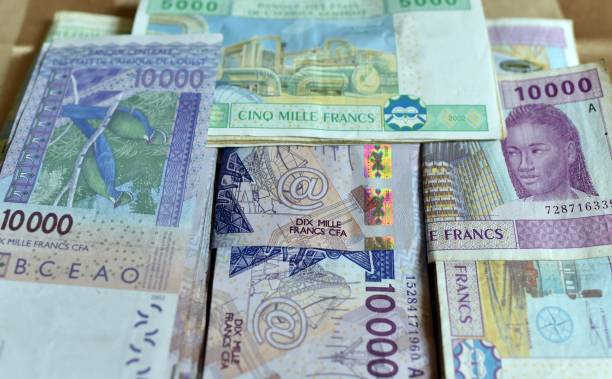In May 2022, during the opening of the 54th Session of the Conference of African Ministers of Finance, Planning and Economic Development (CoM2022) in Dakar, the current Chairman of the African Union and President of the Republic of Senegal, Mr. Macky Sall spoke of the need to create a pan-African rating agency in the face of “sometimes very arbitrary ratings” from major international rating agencies. This point advanced by the current Chairman of the African Union, many African rating agencies had already pointed out in the past. The financial rating of African countries thus seems to be an increasingly worrying subject of reflection for African financiers, economists and leaders. So what is financial rating and how important is it in the development of African countries?
What is Financial Rating?
The financial rating or credit rating is the assessment, by a financial rating agency, of the financial solvency risk of a debtor under a financial instrument. It consists of giving an opinion on the quality of credit that a borrower can issue, which can be a Corporate (industrial company, commercial company), a financial institution (bank, insurance, pension fund, etc.), a public actor (local authority ) or a State and in the case of a State where we will speak of sovereign rating.
Sovereign financial rating in an African context
Although financial rating was born more than 100 years ago, it was not until the 1990s that it appeared on the African continent. South Africa is the first country to receive a rating from the S&P agency, followed by Senegal in 2000 and two other heavyweights on the continent, namely Nigeria and Kenya. Today, 32 countries on the African continent are rated by at least one of the three world leaders in financial ratings: Standard & Poor’s, Moody’s and Fitch. African financial professionals have not remained on the sidelines of this activity. Thus, African rating agencies have also been created, and are trying as best they can to find a place on the local market in the face of fierce competition from the big three. Examples include Agusto & Co, the first African rating agency created in Nigeria in 1992, Global Credit Rating Co, a South African rating agency created in 1996, which today claims the leading position in rating in Africa, and Bloomfield Investment Corporation created in 2013 in Côte d’Ivoire and mainly present in West Africa.
Role and challenges of financial rating
Financial rating determines and facilitates the issuance of debt by rated entities on financial markets. As soon as a credit issuer wishes to issue a bond on the market, the rating of the credit quality of this issuer turns out to be essential, or at the very least, very useful. The rating thus constitutes a kind of certification, a quality label increasingly requested, even demanded by investors on the financial markets. Without this certification, it is very difficult, if not impossible, for an entity to use bonds on the financial markets.
Thus, the ratings of major financial rating agencies have enabled rated African countries to have access to international financial markets in order to raise debt to finance the development of their economies. But at what cost?
The African continent has now become a key player in the global economic and financial system, and financial and trade flows to the continent are only increasing. However, the ratings assigned by the major financial rating firms to African countries can sometimes leave something to be desired, so that more and more challenges are being issued by African governments, also supported by African rating agencies, who judge the methods used by the agencies of the Big Three, unsuited to the realities of the continent.
At present, out of 32 African countries rated by the big three, only one country, Botswana, has a sovereign rating giving its credit a low-risk debt status (Investment-Grade in English), i.e. say belonging at least to the “lower average quality” category. All the other countries, including South Africa and Kenya, currently have “below-investment grade” ratings, i.e. having their debt considered more risky, belonging at most to the category “speculative”.

Reviews
Before 2020, most African countries were already in the speculative category. With the COVID crisis, we have witnessed a massive wave of downgrading of the sovereign ratings of African countries. Fifty-six percent of the countries rated (18/32) saw their rating lowered with the pandemic, which is significantly more than the average for the other continents (9% in Europe, 28% in Asia and 45% in Europe). Very recently, in February and then July 2022, it was Ghana that saw its rating downgraded by Standard & Poor’s and Fitch respectively, to the “high risk, ultra speculative” category, thus excluding the country from the financial markets.
Economists, financiers and African leaders seem to notice an instinctive tendency for financial rating agencies to lower the ratings of African sovereigns at the slightest warning more than those of countries in other regions of the world. This is caused, they argue, by an overvaluation of the risk of the African continent, and by irrelevant ratings based on the consideration of several subjective and unsuitable criteria. In addition, a study has shown that once revised downwards, it takes an average of seven years for a country to regain its previous rating, and this, sometimes in defiance of the improvement in macroeconomic conditions.
Impact of financial rating in Africa
The consequence of these sometimes “arbitrary” ratings is the increase in the cost of country credit and the limitation to the financing of the development of African economies. By having their rating in the so-called “speculative” categories, African countries are forced to bear higher risk premiums, demanded by investors, in compensation for the risk taken by them by investing in the securities of these countries. This thus has the effect of increasing the cost of credit, that is to say the interest rates at which the lenders will have to be reimbursed, and thereby reducing the demand for credit from certain States which do not would not be able to bear these sometimes exorbitant rates. Moreover, a country with a rating considered risky could, even if it wished to contract debt on the markets, not find investors ready to subscribe to such risky securities.
Thus, with the Covid-19 crisis having led to a wave of downgrading of African sovereign ratings, there has been a sudden interruption and flight of capital from the African continent. In South Africa, for example, net outflows in portfolio investment in stocks and bonds by non-residents in that country exceeded $9.7 billion in 2020 and the rate of return on 10-year bonds fell from 8.24% to 9.27% between January and September 2020. Recently, it was Ghana that suffered the heavy consequences of the downgrading of its rating. According to Bloomberg, as of Wednesday August 10, “the premium demanded by investors to hold Ghanaian debt was 1,807 basis points over US Treasuries, according to JP Morgan Chase & Co indices, which the effect of excluding the country from international financial markets”.
Faced with all this, several African leaders, including Mr. Macky Sall, current President of the African Union, have stepped up to denounce the exaggeration of the assessments of the risk of investment in Africa by international rating agencies, and therefore the need to create a pan-African rating agency, ie a rating agency for all African countries whose opinion will be recognized by both African and foreign investors. That said, it remains to be seen how and when this project will materialize.
In any case, it is indeed an ambitious project, which, if it manages to materialize, could most certainly relieve African countries in financing the development of their economies.
By Elie Kreman





